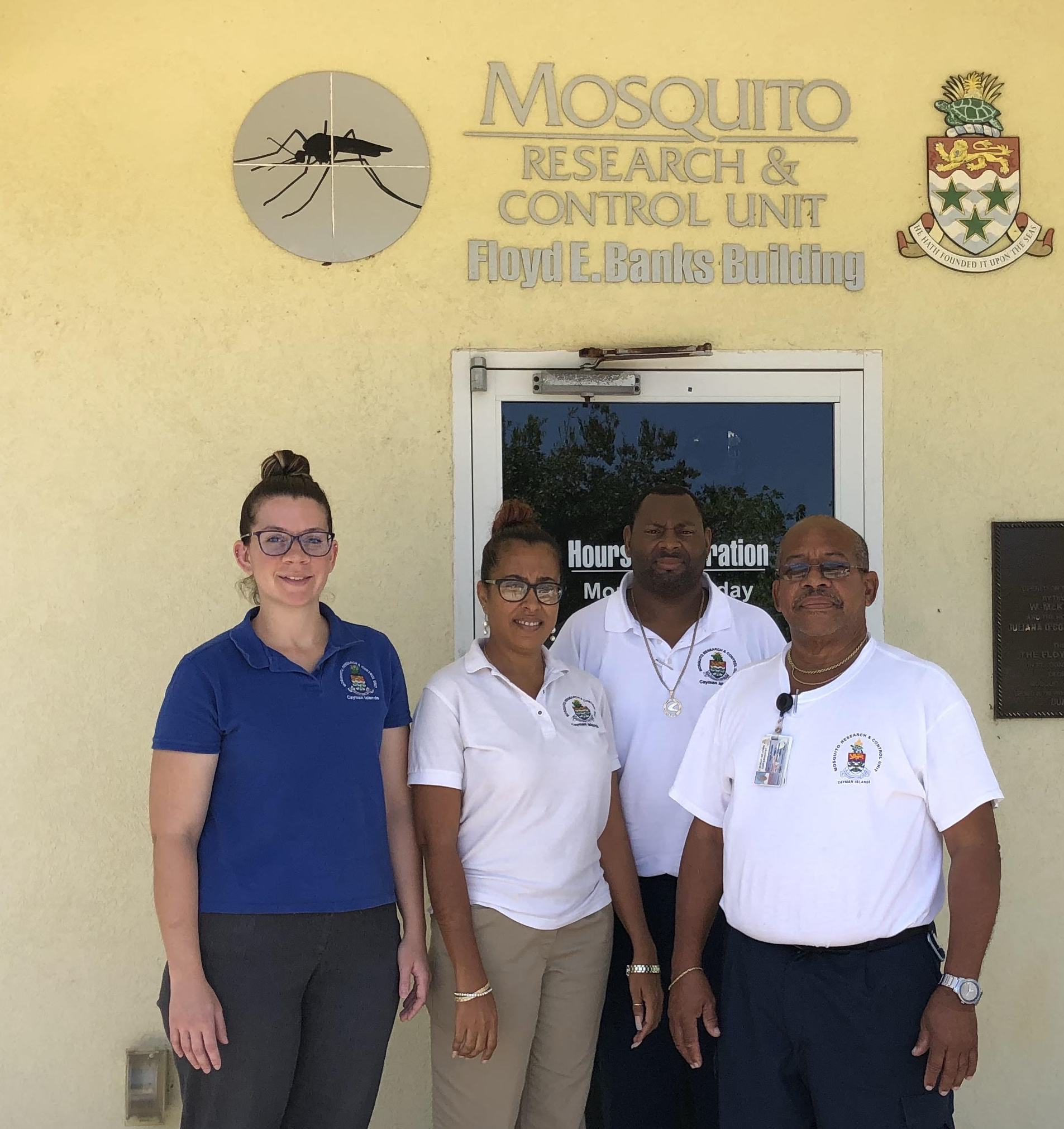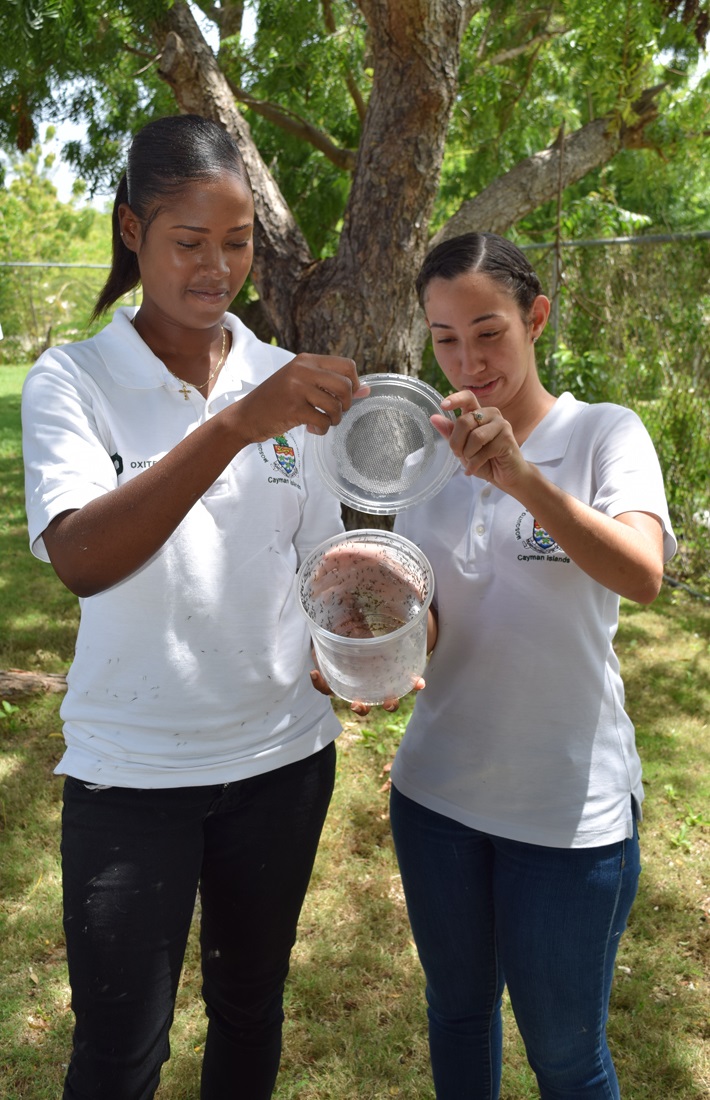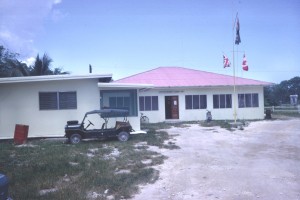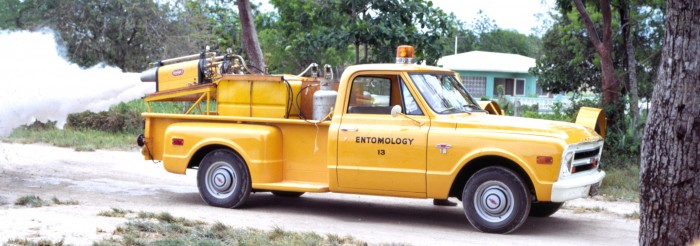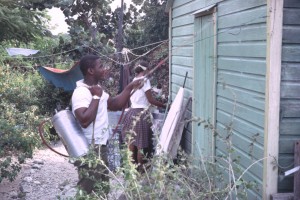The Cayman Islands Mosquito Research & Control Unit
Since its founding in 1967 MRCU has grown to provide mosquitocontrol operations on all three islands. We currently employ 53 staff members at five locations in the Cayman Islands.
About Us
The Mosquito Research & Control Unit (MRCU) was established in 1965 when Marco Giglioli arrived from London with instructions ‘to establish a laboratory and conduct research with a view to advising the Cayman Government on suitable methods of control.’
The Mosquito Research and Control Unit aims to help Cayman Islands residents by reducing mosquito nuisance and protecting against mosquito-borne diseases such as malaria and dengue which are common in the region.
To do this, we employ an Integrated Pest Management approach, using a range of physical, biological and chemical control techniques to minimize nuisance levels of mosquitoes and prevent disease transmission.
Dr Marco Giglioli
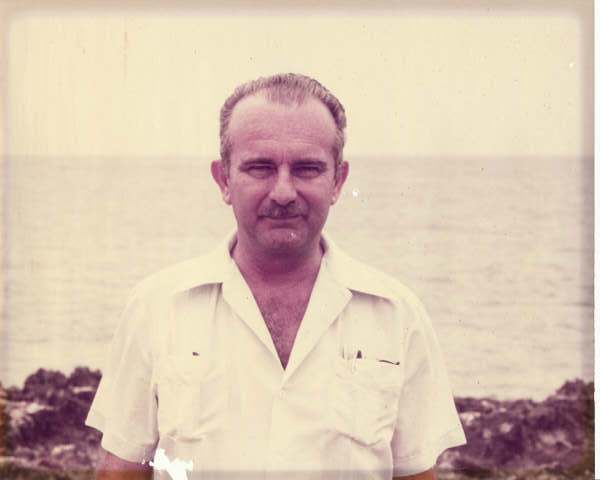
HISTORY OF MRCU
- 1834 – The first record of a mosquito problem on Grand Cayman by the Governor of Jamaica who when visiting noted ‘The mosquitoes there amount to quite a national misfortune.’
- 1938 – The first known survey of species was carried out by a visiting sanitary inspector followed the same year by a team from Oxford University
-
- 1948 – Further surveys carried out by a visiting malariologist (Dr G Giglioli)
-
- 1965 – The Mosquito Research & Control Unit was established under the control of Dr Marco Giglioli to prevent vector borne disease and to reduce nuisance biting. A laboratory was set up on the current site of George Town hospital A&E.
-
- 1966 – The Mosquito (Research &) Control Law was first passed.
- 1966 – The first vehicle mounted fogging unit (a Tifa Todd machine) hit the streets of George Town by 1969 there were 9 fogging units mostly mounted on Mini Mokes, staffed largely by volunteers.
-
- 1967 – Dyke building began in the swamps of Grand Cayman and the network of dykes and canals grew until 1983. This allowed for the swamp levels to be manipulated to interrupt the breeding cycles of the swamp mosquito.
-
- 1968 – Port disinsection began; arrangements were made for the spraying of any ship or aircraft arriving in Grand Cayman.
-
- 1970 – Operations began in the Sister Islands.
-
- 1971 – The first aerial insecticide campaign took place using malathion from a Cessna Ag-Wagon aircraft.
-
- 1971 – Dr Giglioli the Director of MRCU was awarded the Order of the British Empire (O.B.E) medal for his work in mosquito control.
-
- 1974 – Records were broken when 793,103 mosquitoes were caught in a trap in Bodden Town in a single night.
-
- 1987 – Due to the appearance of insecticide resistance to conventional insecticides, hormonal and bacterial insecticides are introduced.
-
- 1996 – Moved to the Giglioli Building on North Sound Road.
-
- 1996 – Further excavation of the swamps (the creation of ‘canalitos’) increasing the flow of water in and out of the swamp with tide and rainfall.
-
- 2003 – Large scale larviciding operations (using temephos) were first carried out and larvicing remains the mainstay for control of the swamp mosquitoes.
- 2006 – the MRCU moves to it’s current custom built building on Red Gate Road.
Our Mission
Our staff
This information is currently being updated and will be available shortly
Our Mission
Career Opportunties
MRCU is currently undergoing a full departmental review and is hiring for a number of vacant positions. If you are interested in an exciting career with us then please register and create your profile on the Cayman Islands Government Job Opportunities portal . Once you are registered a search for”mosquito” will return all the current vacancies at MRCU.
Our Mission
Research Focus
Research at MRCU is focused on improving the existing control methods and evaluating new technologies. MRCU has two Senior Research Officer positions focused on research into mosquito biology and insecticide application technologies. Routine research is conducted to ensure insecticide resistance is not present in the products utilized and to ensure the products are applied in an efficient and environmentally manner.
Our Mission
Our Mission
This information is currently being updated and will be available shortly
Our Mission
Future Plans
MRCU is constantly looking for ways to improve its mosquito control. In recent years it has moved away from organo-phosphate chemicals aimed at controlling adult mosquitoes to bio-rational products that control the larval forms. New application technologies will be evaluated and introduced if they are found to be effective. Such technologies include Wide Area Larviciding using both aircraft and ground based ” Buffalo Turbine” units.
In 2022 MRCU received funding to purchase an Unmanned Aerial Vehicle (UAV) similar to the one in the video. MRCU is currently working on an aerial operations manual and staff training to enable the UAV to be safely used operationally to supplement its existing aerial capabilities.
This information is currently being updated and will be available shortly


